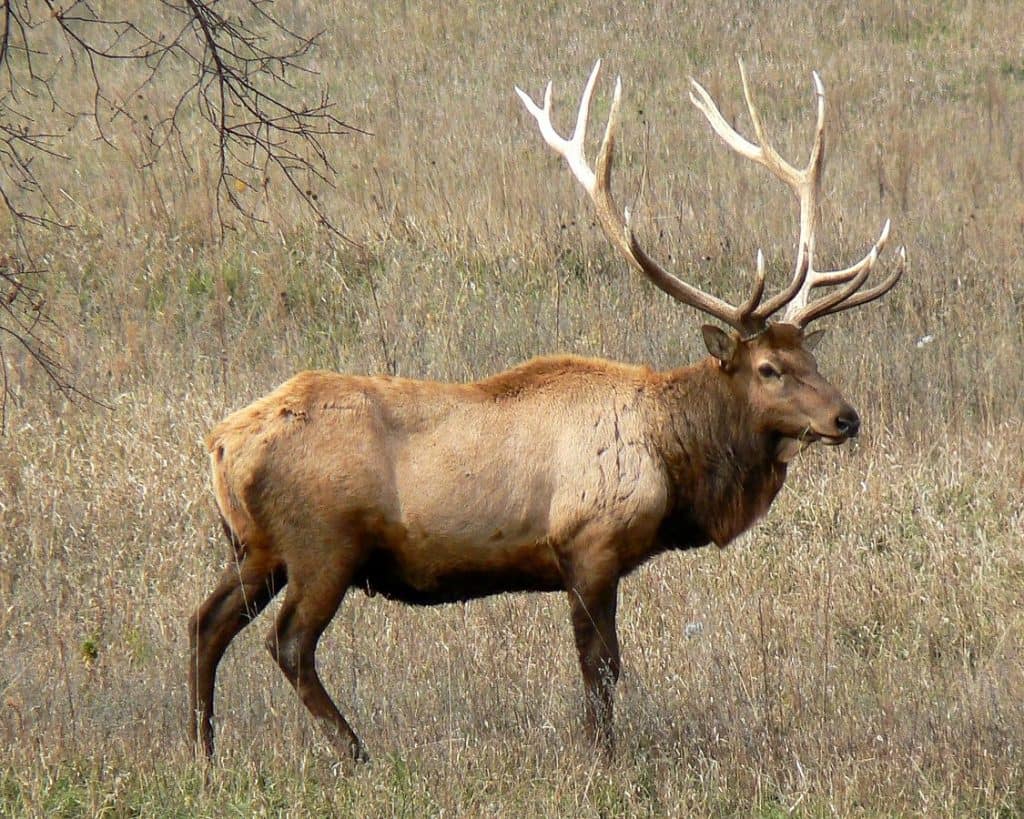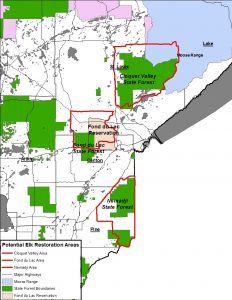

Wildlife researchers have found three areas near Duluth that could work to bring back elk to more of their native range.
The large animals once ranged across almost all of Minnesota, but they were exterminated by hunters during European immigration and settlement. Today, there is a small herd in the far northwestern corner of the state. Another herd roams in Wisconsin, about 90 miles southeast of Duluth.
The Fond du Lac Band of Lake Superior Chippewa and partners have been studying the possibility of restoring elk in the region for the past three years. The animals are called omashkoozoog in the Ojibwe language, which means “prairie moose.”
Now, they have found three places they think might work.
The Duluth News Tribune reports that one area is in the Cloquet Valley State Forest, north of Duluth; a second site is in the Fond du Lac State Forest, near the tribal reservation southwest of the city; a third site would be in the Nemadji and St. Croix State Forests, south of Duluth.
“We worked to identify and encompass areas with few major roads, little agriculture, lots of public land and forest land where timber harvest is a priority land use,” Mike Schrage, Fond du Lac biologist said.
The lands are mostly county, state and tribal forests, as well as potentially Superior National Forest and private lands. It’s believed elk would coexist with humans in this region better than in northwestern Minnesota, where they come into conflict with agricultural producers over crop predation.
“Re‐establishing this keystone herbivore will help restore the state’s traditional wildlife heritage, diversify the large mammal community, increase tourism from wildlife viewers, and eventually provide additional hunting opportunities,” the project’s website states. “Finally, a landscape actively managed for elk will benefit other species adapted to young forests and brushlands.”
The restoration research project will also include a public input phase, to determine if there’s support for reintroduction. Those activities are expected to start this winter and conclude in June 2019.

